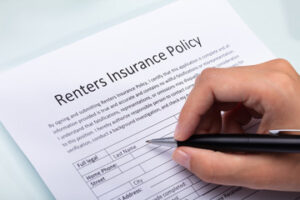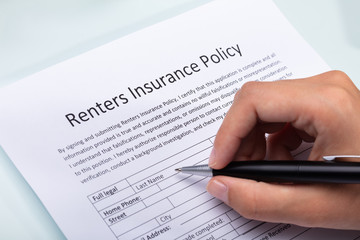Renters’ Insurance protects a renter’s personal property when lost, stolen, or damaged. It also covers liability claims, additional living expenses (ALE), and legal defense costs if someone sues the renter for causing bodily injury or property damage. The credit rating agency AM Best offers rankings for insurers based on their financial strength. When shopping for a policy, look for financially stable companies.
 Arkansas Renters Insurance will cover the damage to your property caused by a fire, storm, vandalism, or other covered incidents. It will also cover the cost of replacing your belongings. Personal property coverage is the most common type of renters insurance and will pay to replace all or part of your possessions damaged by a covered loss. This may include your clothing, furniture, appliances, and other items.
Arkansas Renters Insurance will cover the damage to your property caused by a fire, storm, vandalism, or other covered incidents. It will also cover the cost of replacing your belongings. Personal property coverage is the most common type of renters insurance and will pay to replace all or part of your possessions damaged by a covered loss. This may include your clothing, furniture, appliances, and other items.
Liability coverage is another important piece of your renters insurance policy. It protects you from legal action if you cause injury or property damage to someone else that is covered by your policy. Medical payments to others coverage is also a key feature of your standard renters policy. It pays for small medical expenses if your guests suffer minor injuries from an accident in your home.
Liability coverage is a part of most renters insurance policies that protects you against lawsuits. This includes medical and legal costs if you’re found responsible for an accident on your property. Some landlords require their tenants to purchase renters insurance with specific liability limits, but you can also choose your own policy. Some policies will even offer no-fault medical payments.
Your personal property coverage is a part of your renters insurance policy that protects you against loss or damage to items in your home, including furniture, electronics, clothing, and kitchen equipment. Some renters insurance policies may exclude certain items, such as jewelry, artwork, and collectibles. The best way to know how much renters insurance you need is to make an inventory of your personal belongings. Then, work with a Farmers agent to decide whether additional coverage is needed for high-value items. You’ll need to document your possessions and submit photos, receipts, and acquisition dates. This will help you file a claim quickly and easily.
If your home is damaged and you must relocate, renters insurance can cover the costs of a temporary place to live. This type of coverage is known as additional living expenses (ALE). ALE reimburses you for hotel stays, restaurant meals and other expenses that are needed to maintain your normal lifestyle during this time. Typical extra costs include fuel and utilities, which are typically higher than you would pay at your own house before the loss.
This can make a big difference to people with limited incomes who don’t have savings or a lot of money to fall back on. In addition, if your new rental unit is in a different neighborhood than your current home, you may be able to claim mileage expenses for driving farther from work. The key is to keep all receipts organized and give your insurer written permission before you make a large purchase or incur an expense exceeding your policy’s limits.
Personal property coverage covers almost everything a renter owns in their apartment or house, including furniture, clothing, electronics and home goods. This coverage pays out after a qualifying event such as fire, theft or damage, and it’s cheaper than homeowners insurance. The amount of personal property coverage you need depends on how much your belongings are worth. You should make a list of your personal possessions and take a video walk-through to determine the value of each item.
Expensive items like jewelry, art and electronic equipment may not be fully covered under a standard policy. This is because they carry high monetary risks when damaged or stolen. However, you can add a rider or floater policy to provide additional coverage for these valuables. It can be expensive, but it’s well worth the cost if your expensive belongings are lost or stolen. Check with your insurer for specific details on how to add this supplemental coverage to your policy.
